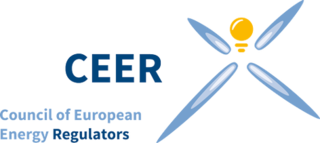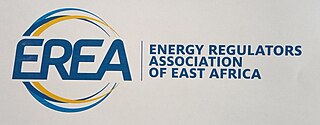
The Energy Regulators Regional Association (ERRA) is a voluntary organization of independent energy regulatory bodies primarily from the Central European and Eurasian region, with Affiliates from Africa, Asia the Middle East and the US.

The Energy Regulators Regional Association (ERRA) is a voluntary organization of independent energy regulatory bodies primarily from the Central European and Eurasian region, with Affiliates from Africa, Asia the Middle East and the US.
The purpose and objectives of the association are:
The first energy regulatory bodies of the ERRA region were established in the mid-1990s as an essential part of restructuring and reforms taking place in these countries. ERRA began as a cooperative initiative of 12 energy regulatory bodies. They were then supported from 1999 to 2008 by the US National Association of Regulatory Utility Commissioners (NARUC), which, with the participation of USAID, arranged technical forums, meetings and study tours for mutual training and development. As a consequence, fifteen energy regulators established ERRA on 11 December 2000 in Bucharest. The association was registered in Hungary in April 2001 and its secretariat is based in Budapest. To date ERRA lists 23 full and 14 associate members.
(Founding Members are marked with * above.)

The Federal Energy Regulatory Commission (FERC) is an independent agency of the United States government that regulates the interstate transmission and wholesale sale of electricity and natural gas and regulates the prices of interstate transport of petroleum by pipeline. FERC also reviews proposals to build interstate natural gas pipelines, natural gas storage projects, and liquefied natural gas (LNG) terminals, in addition to licensing non-federal hydropower projects.

A public utility company is an organization that maintains the infrastructure for a public service. Public utilities are subject to forms of public control and regulation ranging from local community-based groups to statewide government monopolies.
A regulatory agency or independent agency is a government authority that is responsible for exercising autonomous dominion over some area of human activity in a licensing and regulating capacity.

The Energy Community, commonly referred to as the Energy Community for South East Europe (ECSEE), is an international organization consisting of the European Union (EU) and a number of non-EU countries. It aims to extend the EU internal energy market to wider Southeast Europe. The members commit to implement relevant EU energy acquis communautaire, to develop an adequate regulatory framework and to liberalize their energy markets in line with the acquis under the founding Treaty.

The National Electric Power Regulatory Authority is responsible for regulating the electricity supply in Pakistan. It is also responsible for issuing licences for generation, transmission and distribution of electricity, establishing and enforcing standards to ensure quality and safety of operation and supply of electric power to consumers; approving investment and power acquisition programs of utility companies; and determining tariffs for the generation, transmission, and distribution of electric power. NEPRA was created when the Parliament of Pakistan passed the Regulation of Generation, Transmission and Distribution of Electric Power Act, 1997.

The Council of European Energy Regulators (CEER) is a non-profit organization in which Europe's national energy regulators co-operate to protect consumer interests and to facilitate the creation of a single, competitive, and sustainable internal market for gas and electricity in Europe.
The European Regulators' Group for Electricity and Gas (ERGEG) was an advisory group to the European Commission on internal energy market issues in Europe. ERGEG was set up by the European Commission to assist the commission in consolidating a single EU market for electricity and gas. ERGEG's members were the heads of the national energy regulatory authorities in the EU's 28 Member States. It was dissolved in 2011 when Agency for the Cooperation of Energy Regulators (ACER) took over its responsibilities.
The electricity sectors of the Republic of Ireland and Northern Ireland are integrated and supply 2.5 million customers from a combination of coal, peat, natural gas, wind and hydropower. In 2022, 34 TWh were generated. In 2018 natural gas produced 51.8%, while wind turbines generated 28.1%, coal 7%, and peat 6.8% of Ireland's average electricity demand. In 2020 wind turbines generated 36.3% of Ireland's electrical demand, one of the highest wind power proportions in the world. While the United Kingdom was one of the first countries in the world to deploy commercial nuclear power plants, the island of Ireland has never had a nuclear power plant built on either side of the Irish border. Nuclear power in Ireland was discussed in the 1960s and 1970s but ultimately never phased in, with legislation now in place explicitly forbidding its introduction.
The Energy Commission, abbreviated ST, is a regulatory body for the energy industry in Peninsular Malaysia and Sabah. The commission was established under the Energy Commission Act 2001. Its key role to ensure that the energy industry is developed in an efficient manner so that Malaysia is ready to meet the new challenges of globalisation and liberalisation, particularly in the energy supply industry.
The National Association of Regulatory Utility Commissioners (NARUC) is the national association representing the U.S. state public service commissioners who regulate essential utility services, including energy, telecommunications, and water. Founded in 1889, the Association is a resource for its members and the regulatory community, providing a venue to set and influence public policy, share best practices, and foster solutions to improve regulation.
Central Electricity Regulatory Commission (CERC), a key regulator of the power sector in India, is a statutory body functioning with quasi-judicial status under sec – 76 of the Electricity Act 2003. CERC was initially constituted on 24 July 1998 under the Ministry of Power's Electricity Regulatory Commissions Act, 1998 for rationalization of electricity tariffs, transparent policies regarding subsidies, promotion of efficient and environmentally benign policies, and for matters connected Electricity Tariff regulation. CERC was instituted primarily to regulate the tariff of power generating companies owned or controlled by the Government of India, and any other generating company which has a composite scheme for power generation and interstate transmission of energy, including tariffs of generating companies.
Water supply and sanitation in Italy is characterized by mostly good services at prices that are lower than in other European countries with similar income levels. For example, the average monthly residential water and sewer bill in Italy is 20 Euro compared to 31 Euro in France. According to the OECD, water in Italy has been underpriced for a long time. With about 240 liter per day, per capita water use for residential uses in Italy is higher than in Spain or in France, where it is about 160 liter per day. Water resources in Italy are distributed unevenly, with more abundant resources in the North and scarcer resources in the South. Most water withdrawals are for agriculture and industry, with only 18 percent of water withdrawals made for drinking water supply. About one third of the water withdrawn for municipal supply is not billed to the customers because of leakage, malfunctioning water meters and water theft.

The Commission for Regulation of Utilities, formerly known as the Commission for Energy Regulation, is the Republic of Ireland's energy and water economic utility regulator.

The Public Utilities Commission of Sri Lanka is the government entity responsible for policy formulation and regulation of the electric power distribution, water supply, petroleum resources, and other public utilities in Sri Lanka.

The Energy Regulators Association of East Africa (EREA) is a non-profit organisation mandated to spearhead harmonisation of energy regulatory frameworks, sustainable capacity building and information sharing among the List of energy regulatory bodies in the East African Community. Its key objective is to promote the independence of national regulators and support the establishment of a robust East African energy union.

The Zanzibar Utilities Regulatory Authority (ZURA) is a multisectoral government agency established under Act No. 7/2013 of the Laws of Zanzibar to provide technical and economic regulation in both electricity, petroleum and water sectors in Zanzibar, autonomous part of Zanzibar Archipelago, Tanzania, East Africa.

The Authority for Regulation of Water and Energy Sectors is an independent regulatory authority of Burundi mandated to provide for technical and economic regulation of electricity and water utilities.